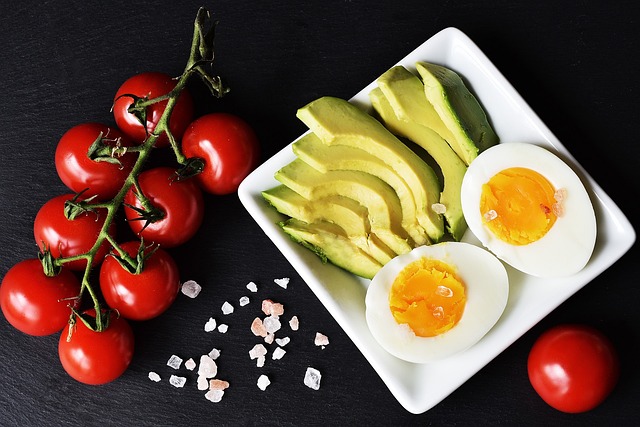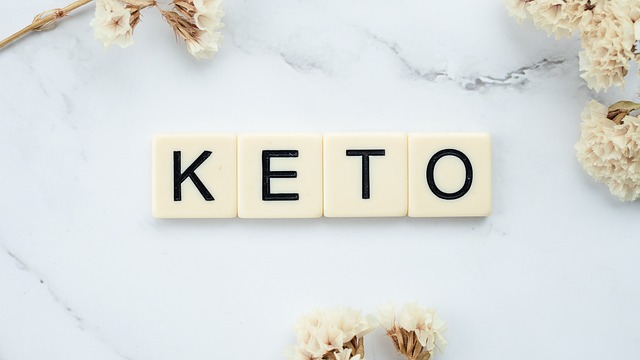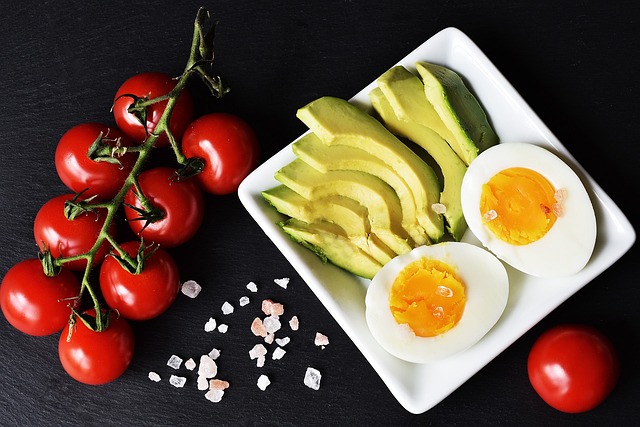Are you considering trying out the keto diet but worried about the impact it may have on your kidneys? Well, you’re not alone. Many people have concerns about the potential long-term effects of a high-fat, low-carb diet on their kidney health. In this article, we’ll delve into the topic and provide you with some tips on how to protect your kidneys while following a keto diet. So, let’s dive in and address those concerns!
When it comes to the keto diet, the primary concern for kidney health revolves around the high protein intake. Some individuals believe that consuming excessive protein may put strain on the kidneys and potentially lead to kidney damage. However, research has shown that the keto diet itself is not inherently harmful to kidney function in healthy individuals. That being said, it’s still important to take certain precautions to ensure the well-being of your kidneys.
One simple step you can take to protect your kidneys on a keto diet is to drink plenty of water. Staying properly hydrated is crucial for kidney health, as it helps to flush out toxins and prevent the formation of kidney stones. Additionally, it’s important to avoid excessive protein intake and focus on consuming high-quality sources, such as lean meats, fish, and plant-based proteins. By maintaining a balanced and varied diet, you can support your kidney health while reaping the benefits of the keto diet.
In conclusion, while there may be concerns about the impact of a keto diet on kidney health, taking certain precautions can help protect your kidneys while following this eating plan. By staying hydrated, avoiding excessive protein intake, and consuming a well-rounded diet, you can maintain a healthy balance and support your kidney function. Remember, it’s always a good idea to consult with a healthcare professional before making any significant dietary changes.

Understanding the Keto Diet
What is a Keto Diet?
A keto diet, short for ketogenic diet, is a low carbohydrate and high fat eating plan that has gained popularity in recent years. The main objective of this diet is to induce a state of ketosis in the body, where it switches from using glucose for energy to using ketones derived from fat. By drastically reducing carbohydrates and increasing fat intake, the body is forced to burn fat for fuel, leading to weight loss.
How Does a Keto Diet Work?
When you restrict carbohydrates in your diet, your body has to find alternative sources of energy. In the absence of glucose, which is derived from carbohydrates, the body begins to break down stored fat into fatty acids and ketones. These ketones are then used as an energy source by the brain and other organs. This metabolic state is known as ketosis and is the foundation of the keto diet.
Effect of Keto Diet on Kidneys
Impact of Keto Diet on Kidney Function
The keto diet has been praised for its weight loss benefits, but it is important to consider the potential impact it may have on kidney function. The kidneys play a crucial role in filtering waste products and maintaining fluid and electrolyte balance in the body. Increased fat metabolism and ketone production can put additional stress on the kidneys, potentially leading to kidney damage or dysfunction if not properly managed.
Potential Risks for Kidneys on a Keto Diet
One of the potential risks for kidney health on a keto diet is the increased production of uric acid, a byproduct of metabolizing protein. Excess uric acid can lead to the formation of kidney stones and, in some cases, can contribute to the development of kidney disease. Additionally, the lack of carbohydrates in a keto diet can cause the body to excrete more fluid, which can potentially lead to dehydration and strain the kidneys.
Are You a Ketosis Master? Take Our Quiz!
Are You a Ketosis Master? Take Our Quiz!
Strategies to Protect Kidneys on a Keto Diet
Ensure Proper Hydration
Hydration is essential for maintaining kidney health, regardless of the type of diet you follow. When on a keto diet, it becomes even more crucial to stay adequately hydrated. The increased fluid loss due to reduced carbohydrate intake can put a strain on the kidneys. It is important to drink enough water throughout the day to compensate for this fluid loss and maintain optimal kidney function. Aim to drink at least 8-10 glasses of water daily, and more if you are physically active or live in a hot climate.
Monitor Electrolyte Balance
Electrolytes, such as sodium, potassium, and magnesium, play a vital role in maintaining fluid balance and nerve function in the body, including the kidneys. On a keto diet, the kidneys eliminate more electrolytes through increased fluid excretion. It is important to monitor your electrolyte levels and replenish them as necessary. You can do this by consuming foods rich in electrolytes or by taking electrolyte supplements recommended by your healthcare professional.
Include Healthy Fats in the Diet
While the keto diet emphasizes high-fat consumption, it is essential to prioritize healthy fats to protect kidney health. Opt for fats from sources like avocados, nuts, seeds, and olive oil, which contain monounsaturated and polyunsaturated fats. These fats have been shown to have beneficial effects on kidney function and overall health. Avoid excessive intake of unhealthy fats, such as trans fats and saturated fats, as they can contribute to kidney damage.
Importance of Hydration
How Dehydration Affects Kidney Function
Dehydration occurs when the body does not have enough fluid to function properly. It can occur more easily on a keto diet due to increased fluid excretion. When you are dehydrated, the kidneys have to work harder to remove waste products from the body, leading to a higher risk of kidney damage. Dehydration can also increase the concentration of substances in the urine, potentially forming kidney stones. It is essential to prioritize hydration to protect your kidneys on a keto diet.
Recommended Fluid Intake on a Keto Diet
To prevent dehydration, it is recommended to drink at least 8-10 glasses of water daily while on a keto diet. However, individual needs may vary depending on factors such as physical activity level, climate, and overall health. Make sure to listen to your body and increase your fluid intake if you are feeling thirsty or experiencing symptoms of dehydration, such as dark-colored urine or dizziness.

Balancing Electrolytes
Role of Electrolytes in Kidney Health
Electrolytes, such as sodium, potassium, and magnesium, are essential for maintaining proper kidney function. They help regulate fluid balance, nerve function, and muscle contractions. On a keto diet, the kidneys excrete more electrolytes due to increased fluid loss. It is important to maintain a balance of electrolytes to support kidney health and prevent imbalances that could lead to kidney damage.
Maintaining Electrolyte Balance on a Keto Diet
To maintain electrolyte balance on a keto diet, you can include foods rich in electrolytes in your meals. Avocados, leafy green vegetables, nuts, and seeds are excellent sources of potassium and magnesium. Additionally, seasoning your food with salt can help replenish sodium levels. However, it is important not to overdo the sodium intake, as excessive sodium can have negative effects on blood pressure and overall health. If needed, you can also consider taking electrolyte supplements under the guidance of a healthcare professional.
Choosing Healthy Fats
Benefits of Healthy Fats for Kidney Function
Consuming healthy fats is crucial for kidney health on a keto diet. Monounsaturated and polyunsaturated fats, found in avocados, olive oil, fatty fish, and nuts, have been shown to have anti-inflammatory properties and may help protect against kidney damage. These fats also provide essential fatty acids that support overall health and contribute to optimal kidney function.
Sources of Healthy Fats on a Keto Diet
To ensure you are consuming healthy fats on a keto diet, include foods like avocados, olive oil, coconut oil, fatty fish (such as salmon or sardines), nuts, and seeds in your meals. These foods not only provide healthy fats but also offer a wide range of nutrients, such as vitamins, minerals, and antioxidants, that support overall health.

Protein Intake on a Keto Diet
Optimal Protein Consumption for Kidney Health
Protein is an essential nutrient for overall health, including kidney function. However, it is important to be mindful of the amount and quality of protein consumed on a keto diet to protect kidney health. High protein intake can increase the workload on the kidneys, potentially leading to kidney damage over time. It is recommended to consume moderate amounts of protein and focus on sources that are low in saturated fats, such as lean meats, fish, poultry, eggs, and plant-based proteins like legumes and tofu.
Considerations for Protein Sources on a Keto Diet
When choosing protein sources on a keto diet, opt for lean cuts of meat and poultry, as well as fatty fish like salmon or trout. These protein sources are not only lower in saturated fats but also provide essential omega-3 fatty acids that have been shown to have protective effects on kidney health. If you follow a plant-based keto diet, consider incorporating tofu, tempeh, soy-based products, and legumes to meet your protein needs.
Monitoring Kidney Health
Regular Kidney Function Tests
To ensure your kidneys are functioning optimally while on a keto diet, it is important to monitor your kidney health regularly. This can be done by undergoing kidney function tests, such as a blood test to check creatinine and blood urea nitrogen (BUN) levels, as well as a urine test to assess protein levels and kidney function. Regular monitoring allows you to detect any changes or abnormalities in kidney function early on and take necessary steps to protect your kidneys.
Consulting a Healthcare Professional
If you have pre-existing kidney conditions or are unsure about the impact of a keto diet on your kidneys, it is crucial to consult a healthcare professional before starting or making significant changes to your diet. They can provide personalized guidance and help monitor your kidney health to ensure you are taking the necessary precautions to protect your kidneys.

Potential Risks and Contraindications
Pre-existing Kidney Conditions
Individuals with pre-existing kidney conditions, such as chronic kidney disease or kidney stones, should exercise caution when considering a keto diet. The high fat and protein content of the diet, as well as potential dehydration, may exacerbate these conditions and put additional stress on the kidneys. It is important to consult a healthcare professional to assess the suitability of a keto diet and to establish appropriate modifications to protect kidney health.
Individual Variation in Kidney Response
It is important to recognize that individuals may respond differently to a keto diet, and the impact on kidney health can vary. While some individuals may experience no negative effects, others may be more susceptible to kidney stress or dysfunction. Developing a personalized approach to the keto diet, taking into account individual health factors, is essential for protecting kidney health.
Conclusion
Maintaining kidney health on a keto diet is possible with proper care and monitoring. By ensuring proper hydration, monitoring electrolyte balance, including healthy fats in the diet, and making informed choices regarding protein intake, you can protect your kidneys while still enjoying the benefits of a keto lifestyle. However, it is important to remember that individual health factors and pre-existing kidney conditions can influence the suitability of a keto diet. Consultation with a healthcare professional is recommended to determine the best approach for protecting your kidneys while following a keto diet.
Journey into Keto: A Quick Quiz
Journey into Keto: A Quick Quiz